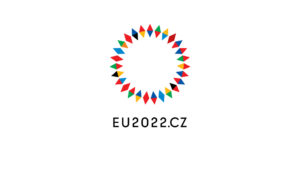As of 1 July, the Czech Republic has taken over the Presidency of the Council of the European Union for six months. Having a crucial role in shaping the agenda of the European Union during this period, the Czech Presidency announced five political priorities, which are as follows:
- the war in Ukraine, which includes sanctions against Russia as well as supporting Ukraine through the necessary aids to refugees and the preparation in view of the post-war reconstruction,
- the energy security aimed at cutting dependence on Russian fuels imports and diversifying energy sources through improved logistics, energy savings and gas reserves, and low-emission and renewable energy. This is meant to be achieved by accelerating the implementation of the REPowerEU plan 1 but also through decarbonisation in the context of the “Fit for 55” package 2,
- defence and cybersecurity to be achieved in collaboration with extra-European partners in the context of NATO and by supporting the implementation of the EU’s military strategy for 2030,
- economic resilience to support businesses’ competitiveness in a critic moment where the pandemic and Russia’s aggression against Ukraine showed how fragile global supply chains are. This priority will tackle several aspects ranging from strategic technologies to promote domestic capacity, in line with the Chips Act, to internal market, especially in digital matters, and to accelerate the legislation on data flows and artificial intelligence.
- Democratic values to maintain and develop democratic values and the rule of law in the EU.
Given FEDIL’s area of expertise, this opinion will focus on energy security and economic resilience.
Regarding energy, there is no doubt that the objectives of the ongoing EU actions such as the “Fit for 55” package and the REPowerEU plan are commendable. However, businesses need strong support to face the challenges related to the current energy crisis, notably the soaring of prices.
On the one hand, in the context of “Fit for 55”, the Czech Presidency should strike the right balance between the goal of decarbonisation and the need to preserve businesses’ competitiveness by promoting a green transition that is economically and socially workable. Therefore, decarbonisation of industrial processes should be incentivised through viable alternatives, such as investments covering access to finance, products and technologies. Otherwise, unfeasible criteria would only pave the way for carbon leakage, which will not solve the environmental challenges linked to climate change, while weakening the global position of EU businesses, already confronted with a severe economic crisis.
On the other hand, in the context of REPowerEU, businesses need adequate financial compensation measures as well as the right investment conditions for more renewable and low-carbon energy and fuels. This could be achieved by taking a realistic approach to phasing out the dependency on Russian fossil energy sources, coordinating common EU purchases, removing existing barriers for the deployment of renewable and low carbon gases, such as hydrogen, and accelerating the negotiations on the EU gas and hydrogen package.
Concerning economic resilience, the Czech Presidency’s works should focus primarily on strengthening the internal market and its digitalisation.
As a starting point, the four freedoms of the EU Single Market as well as a market-oriented standardisation need to be promoted and enshrined in the relevant economic policies, which must refrain from any paths which could undermine businesses’ competitiveness. For example, the upcoming legislative initiative on the Single Market Emergency Instrument should be shaped in a targeted way to exclusively preserve the Single Market’s integrity in crisis times without imposing disproportionate obligations upon business operators.
On the digital side, it is good news that the current Presidency intends to focus on important files such as the AI, the Data Act and cybersecurity. Indeed, these are initiatives which require more work to ensure further clarifications and improvements during negotiations. Similar remarks can be made on the Chips Act, a welcomed step forward to strengthen the EU as a global player in semiconductors production. However, to really boost economic resilience and autonomy, a greater effort in terms of distribution of funds and speediness is needed to ensure this initiative’s capacity to establish a level playing field in the global value chains and to ensure competitiveness with other partners.
Overall, no one denies that in the current difficult times the political commitments of the Czech Presidency will not be an easy task. However, the stated priorities have outmost importance in this critical moment and the Union cannot afford that targeted policy aims fall by the wayside. Businesses remain ready to support this agenda in its positive path towards a higher protection of the European Union values, security and prosperous economy. Hopefully, the Czech Presidency too will be attentive to businesses for the purposes of a fruitful and constructive cooperation.
